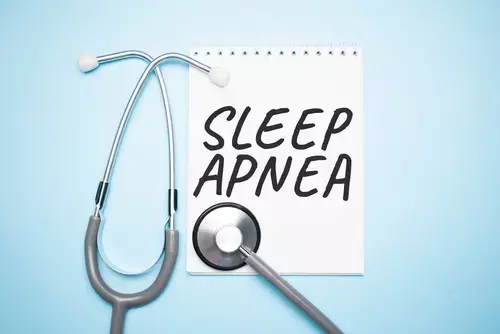- Home
- Medical news & Guidelines
- Anesthesiology
- Cardiology and CTVS
- Critical Care
- Dentistry
- Dermatology
- Diabetes and Endocrinology
- ENT
- Gastroenterology
- Medicine
- Nephrology
- Neurology
- Obstretics-Gynaecology
- Oncology
- Ophthalmology
- Orthopaedics
- Pediatrics-Neonatology
- Psychiatry
- Pulmonology
- Radiology
- Surgery
- Urology
- Laboratory Medicine
- Diet
- Nursing
- Paramedical
- Physiotherapy
- Health news
- Fact Check
- Bone Health Fact Check
- Brain Health Fact Check
- Cancer Related Fact Check
- Child Care Fact Check
- Dental and oral health fact check
- Diabetes and metabolic health fact check
- Diet and Nutrition Fact Check
- Eye and ENT Care Fact Check
- Fitness fact check
- Gut health fact check
- Heart health fact check
- Kidney health fact check
- Medical education fact check
- Men's health fact check
- Respiratory fact check
- Skin and hair care fact check
- Vaccine and Immunization fact check
- Women's health fact check
- AYUSH
- State News
- Andaman and Nicobar Islands
- Andhra Pradesh
- Arunachal Pradesh
- Assam
- Bihar
- Chandigarh
- Chattisgarh
- Dadra and Nagar Haveli
- Daman and Diu
- Delhi
- Goa
- Gujarat
- Haryana
- Himachal Pradesh
- Jammu & Kashmir
- Jharkhand
- Karnataka
- Kerala
- Ladakh
- Lakshadweep
- Madhya Pradesh
- Maharashtra
- Manipur
- Meghalaya
- Mizoram
- Nagaland
- Odisha
- Puducherry
- Punjab
- Rajasthan
- Sikkim
- Tamil Nadu
- Telangana
- Tripura
- Uttar Pradesh
- Uttrakhand
- West Bengal
- Medical Education
- Industry
Cardio-oncology patients may have a high prevalence of sleep apnea and risk of CHF

Cardio-Oncology Patients may have high prevalence of sleep apnea and risk of CHF suggests a new study published in the American College of Cardiology.
Sleep apnea is prevalent among patients at higher risk for developing congestive heart failure (CHF) following cancer treatment and could be used as a risk factor to identify patients who would benefit from earlier treatment, according to a study being presented at ACC’s Advancing the Cardiovascular Care of the Oncology Patient course. Obstructive sleep apnea (OSA), the focus of this study, has a prevalence of 48-52% among patients with CHF in the general population. To determine the prevalence of OSA in cardio-oncology patients, researchers administered the STOP-BANG questionnaire, a well-established screening tool for sleep apnea, among 218 cardio-oncology patients and 296 general cardiology patients. Data were collected on traditional risk factors, STOP-BANG scores and history of sleep for both groups. Baseline echocardiogram left ventricular ejection fraction (LVEF)and Global Longitudinal LV Strain (GLS) results were measured for the cardio-oncology population. Other research has shown that LVEF and GLS can predict early cancer-therapy-related cardiomyopathy, and OSA is also linked to LV dysfunction, CHF and abnormal LV-GLS. “Echocardiogram has evolved to be a useful tool to detect and therefore treat cardiomyopathy early in patients with sleep apnea and in the cardio-oncology population, so we also wanted to see if there are shared echo markers that identify patients who are at greater risk as they start their journey to treat their cancer,” says Mini K. Das, MD, FACC, medical director of the cardio-oncology program at Baptist Health in Louisville, KY, and the study’s primary author. Results showed that the incidence of sleep apnea was 39% in the cardio-oncology group and 54% in the general cardiology group. The researchers note that individuals with untreated sleep apnea and those at higher risk for sleep apnea have abnormal baseline LV strain, a common echo parameter linked to adverse cardiovascular events. “Identifying these individuals may allow early intervention in a risk factor clearly associated with HF now recognized to affect cancer therapy and survivorship,” Das says. Notably, the study showed that the prevalence of sleep apnea in the cardio-oncology group was equal to or greater than other traditional risk factors used in current risk factor profile algorithms and that LV GLS was more abnormal in patients with untreated sleep apnea or a high STOP-BANG score. “Sleep apnea should be incorporated into current risk algorithms and a larger study is needed to evaluate the impact of sleep apnea in this high-risk population. We feel that sleep apnea assessment must be a part of routine risk assessment for patients undergoing cancer therapeutics,” says Das. Advancing the Cardiovascular Care of the Oncology Patient, being held Feb. 9 to 11, is an interdisciplinary course that highlights emerging strategies and best practices for managing the heart health of cancer patients.
Reference:
Sleep Apnea a Risk Factor For Heart Failure From Cancer Therapy. Feb 09, 2024. ACC News Story
Keywords:
Cardio-Oncology Patients, high prevalence, sleep apnea, risk of CHF
Dr. Shravani Dali has completed her BDS from Pravara institute of medical sciences, loni. Following which she extensively worked in the healthcare sector for 2+ years. She has been actively involved in writing blogs in field of health and wellness. Currently she is pursuing her Masters of public health-health administration from Tata institute of social sciences. She can be contacted at editorial@medicaldialogues.in.
Dr Kamal Kant Kohli-MBBS, DTCD- a chest specialist with more than 30 years of practice and a flair for writing clinical articles, Dr Kamal Kant Kohli joined Medical Dialogues as a Chief Editor of Medical News. Besides writing articles, as an editor, he proofreads and verifies all the medical content published on Medical Dialogues including those coming from journals, studies,medical conferences,guidelines etc. Email: drkohli@medicaldialogues.in. Contact no. 011-43720751


